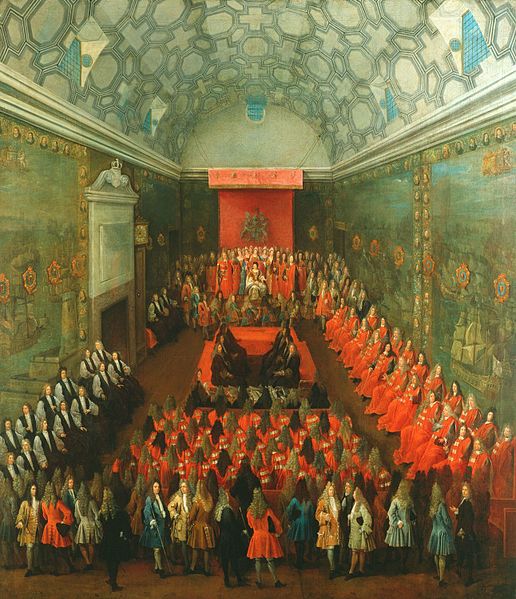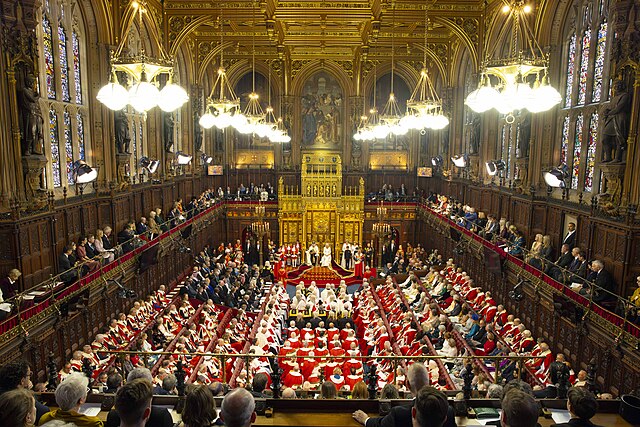In the Westminster system used in many Commonwealth realms, the King-in-Parliament is a constitutional law concept that refers to the components of parliament – the sovereign and the legislative houses – acting together to enact legislation.
Queen Victoria Opening Parliament, 1845, by Alexander Blaikley. The Queen-in-Parliament comprises "the Queen sitting on her Throne with the Lords of Parliament sitting before her and the Commons standing at the Bar."
Queen Anne in the House of Lords, c. 1708–1714, by Peter Tillemans
Opening of Parliament in 1523, from the Wriothesley Garter Book. Depicted are the King (Henry VIII) on his throne, the seated Lords Spiritual and Temporal, and, along the bottom, members of the House of Commons standing at the bar (including Speaker Thomas More).
2023 State Opening of Parliament
Sovereignty can generally be defined as supreme authority. Sovereignty entails hierarchy within the state, as well as external autonomy for states. In any state, sovereignty is assigned to the person, body or institution that has the ultimate authority over other people in order to establish a law or change existing laws. In political theory, sovereignty is a substantive term designating supreme legitimate authority over some polity. In international law, sovereignty is the exercise of power by a state. De jure sovereignty refers to the legal right to do so; de facto sovereignty refers to the factual ability to do so. This can become an issue of special concern upon the failure of the usual expectation that de jure and de facto sovereignty exist at the place and time of concern, and reside within the same organization.
The frontispiece of Thomas Hobbes' Leviathan, depicting the Sovereign as a massive body wielding a sword and crosier and composed of many individual people





